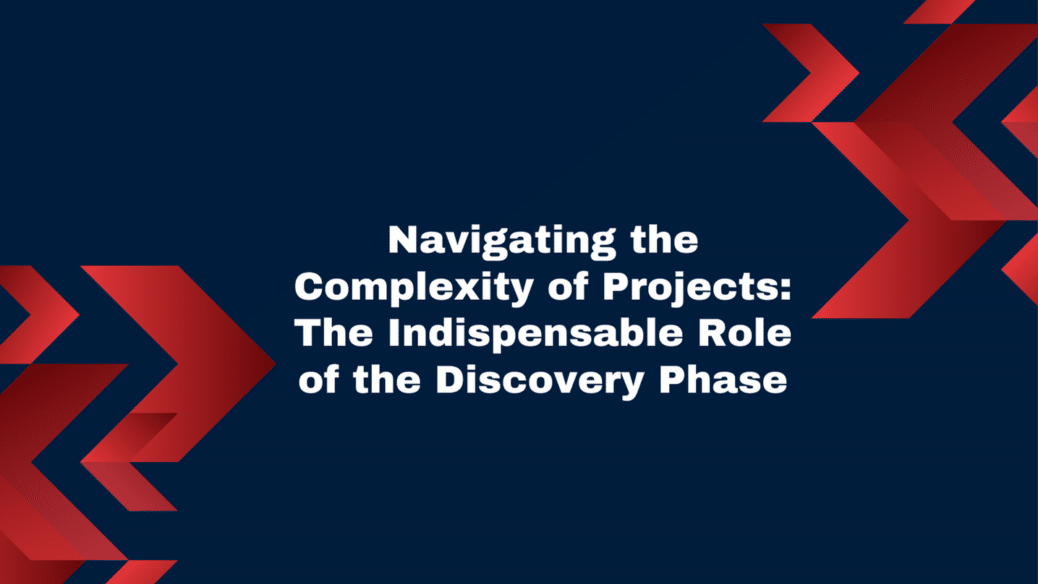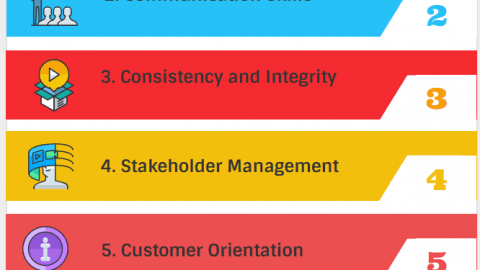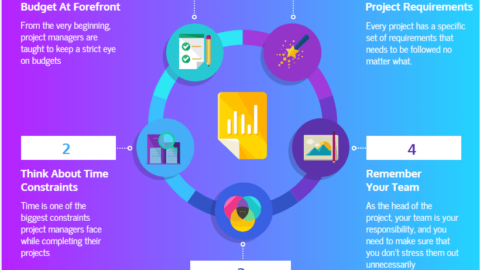Navigating the Complexity of Projects: The Indispensable Role of the Discovery Phase
Embarking on a software development project? It’s tempting to plunge straight into the coding and design aspects. However, a critical step often overlooked is the discovery phase of a project, which helps ensure that the project hits the mark in every way—technically, functionally, and financially. It’s the strategic pause before the sprint, and it’s vital for the project’s success. The discovery phase, also known as the project initiation phase, is an important stage in project development. It typically occurs at the beginning of a project and involves gathering information, conducting research, and analyzing the project’s feasibility and requirements. The main purpose of the discovery phase is to gain a deep understanding of the project’s objectives, scope, constraints, and risks before proceeding further.
Table of Contents
During the discovery phase, project stakeholders, including the project team, clients, and end-users, collaborate to define the project’s goals and objectives, identify the project’s target audience or market, and outline the high-level project requirements. This phase helps establish a shared understanding of the project and its potential challenges.
What is the discovery process of a project?
The discovery process of a project involves gathering information, conducting research, and analyzing the project’s feasibility, requirements, and objectives. It aims to gain a deep understanding of the project’s scope, constraints, and risks before proceeding further, setting the foundation for successful project development.
What are the stages of discovery?
The stages of discovery in a project typically include project initiation, stakeholder analysis, requirements gathering, research and analysis, user research, design exploration, risk assessment, and project planning. These stages involve activities that help define project goals, understand user needs, and assess project feasibility and constraints.
Key activities during the discovery phase may include:
- Project initiation: Defining the project’s purpose, goals, and objectives.
- Stakeholder analysis: Identifying and understanding the individuals or groups affected by the project and their needs and expectations.
- Requirements gathering: Collecting and documenting the project’s functional and non-functional requirements, capturing the project’s scope and boundaries.
- Research and analysis: Conducting market research, competitor analysis, and feasibility studies to understand the project’s viability, potential risks, and constraints.
- User research: Gathering insights about the target users, their behaviors, preferences, and needs.
- Design exploration: Exploring conceptual designs, wireframes, or prototypes to visualize the project’s potential solutions.
- Risk assessment: Identifying potential risks and constraints that could affect the project’s success and developing mitigation strategies.
- Project planning: Creating a high-level project plan, estimating the required resources, and establishing a preliminary timeline.
The outcomes of the discovery phase often inform the project’s scope, budget, timeline, and overall approach. It helps stakeholders make informed decisions about the project’s feasibility and determine whether to proceed to the next phase of development.
The Significance of Project Development Discovery
What constitutes the project discovery phase? It’s essentially a fact-finding mission. It’s the time to delineate the project’s vision, goals, and scope. Statistics from McKinsey indicate that a typical large IT project goes 45% over budget while delivering 56% less value than predicted. The discovery phase mitigates such risks by achieving the following:
- Accurate Scoping: It aids in clearly defining the project scope, which contributes to more accurate cost and timeline estimates.
- Data-Driven Design: Instead of relying on assumptions, design decisions are guided by data collected during discovery.
- ROI Assurance: A thorough discovery phase aims to maximize the return on investment by aligning the project closely with business objectives.
- User-Centric Approach: This phase places the user at the forefront, which ultimately results in a better user experience.
- Cost Savings: By identifying potential issues early, you avoid the high costs associated with changes in the later stages of development.
Skipping the Discovery Phase: A Cautionary Tale
Neglecting this phase can result in scope creep, rising costs, and missed deadlines. Furthermore, a misunderstanding in the initial phase can spiral into costly errors and wasted time as the project progresses.
Laying the Groundwork for Discovery
Even before the discovery phase starts, some prerequisites must be met:
- Determine the business objective.
- Establish the main point of contact for the project.
- Provide any existing project information to the project manager.
- Obtain an initial cost estimate.
- Secure a budget specifically for the discovery phase.
- Be prepared to offer any existing research, but don’t worry about conducting new studies; that’s part of the discovery process.
Assembling the Discovery Team
Post-pre-discovery, a specialized discovery team is formed. Typically, it consists of a Business Analyst, Developer , UI/UX Designer, and Project Manager, each having unique roles and responsibilities in shaping the project.
Methodical Steps in Discovery
The discovery phase of a project is systematic and can include the identification of stakeholders, business goals, and success metrics. It could involve existing research review, user journey mapping, competitive analysis, data synthesis into software requirements, and even time and budget estimations. This phase culminates in a detailed project roadmap.
The Interactions: Discovery Sessions
These are collaborative sessions involving your team and the discovery team to explore the project domain, business processes, and expectations. Various tools and techniques, like questionnaires and A/B testing, can be used to garner insights from wider team members and product users.
Time and Cost Implications
The discovery phase duration varies depending on project complexity, ranging from a few days to several weeks. Billing could be based on a fixed price or a time and material model.
Deliverables of Discovery
At the end of this project development discovery, expect to receive a Software Requirements Specification (SRS) document, a preliminary UX prototype, development roadmap, and budget and timeline estimates. These are your blueprints for the project ahead.
The discovery phase of a project is not an optional extra; it’s a necessity. By laying a strong foundation through discovery, you not only safeguard your investment but also significantly enhance the likelihood of project success.

11+ years strategic communications, marketing, and project management experience. I am a trainer at StarWood Training Institute, focusing on online courses for project management professionals.












